Blinken Says Ball In Iran's Court Over Nuclear Talks
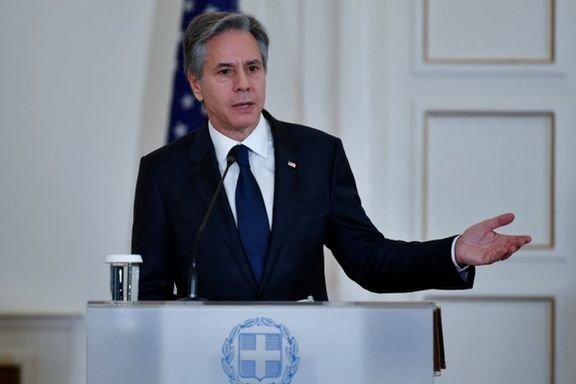
US Secretary of State Antony Blinken said Tuesday it was up to Iran to resolve a deadlock in nuclear talks and accused it of enabling Russian aggression in Ukraine.

US Secretary of State Antony Blinken said Tuesday it was up to Iran to resolve a deadlock in nuclear talks and accused it of enabling Russian aggression in Ukraine.
Blinken, who was visiting Athens, said the United States was committed, together with Israel, to ensuring that Tehran "never acquires a nuclear weapon".
"That's not exactly news. The president (Joe Biden) has been very clear that every option is on the table to do that," Blinken told a news conference alongside his Greek counterpart, Nikos Dendias.
Biden's administration had been trying to resurrect the 2015 agreement, the Joint Comprehensive Plan of Action (JCPOA), which was abandoned by Biden's predecessor Donald Trump in 2018, but talks lasting 18 months deadlocked in September.
Soon antigovernment protests broke out in Iran that were met with deadly force by the government, killing 500 civilians, further complicating relations with the West.
Blinken accused Tehran of failing to engage and said the JCPOA was not on the table now.
"We continue to believe that, with regard to the nuclear program, the most effective, sustainable way to deal with the challenge it poses is through diplomacy. But in this moment, those efforts are on the backburner because Iran is simply not engaged in a meaningful way," Blinken said.
"A lot depends on what Iran says and does and whether or not it engages."
Blinken added: "In the meantime, of course, we've seen provision by Iran of drones to Russia to enable its aggression in Ukraine."
He called the invasion a "strategic failure in every way" for Russian President Vladimir Putin.
With reporting by Reuters
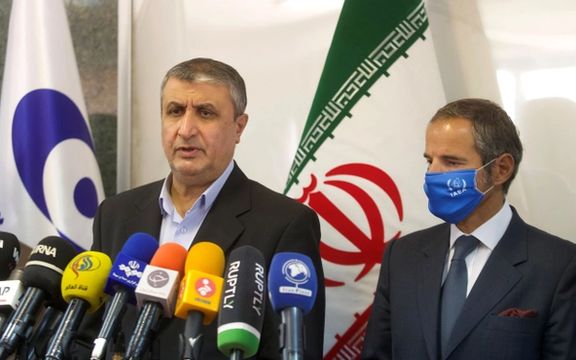
The IAEA said Sunday it was discussing with Iran the results of recent verification work, after a report that it had detected uranium enriched to weapons grade.
On Sunday, Bloomberg News quoted senior diplomats as saying that the UN watchdog, the International Atomic Energy Agency (IAEA) had recently detected uranium enriched to 84 percent while monitoring Iran’s nuclear facilities.
Iran has been enriching uranium to up to 60 percent purity since April 2021. Three months ago, it started enriching to that level at a second site, Fordow, which is dug into a mountain. Weapons grade is around 90%.
"The IAEA is aware of recent media reports relating to uranium enrichment levels in Iran," the International Atomic Energy Agency said on Twitter. "The IAEA is discussing with Iran the results of recent Agency verification activities and will inform the IAEA Board of Governors as appropriate."
The IAEA, which inspects Iran's nuclear facilities, flags significant developments in Iran's activities either in ad hoc reports to the 35-nation Board of Governors or regular quarterly ones issued before board meetings.
Diplomats said on Sunday evening that the IAEA so far had not issued any such report.
The Islamic Republic has reduced IAEA’s monitoring access to its activities since early 2021 and has violated limits set by the 2015 nuclear accord (JCPOA) that kept enrichment below 5 percent. Tehran began violating the limit in 2019, when the US imposed full oil export sanctions after withdrawing from the JCPOA.
Nearly two years of diplomatic attempts to restore the deal have failed, with the West also becoming critical of Iran’s bloody crackdown on popular protests and its supply of military drones to Russia.
Any of the three European signatories of the JCPOA, the United Kingdom, France or Germany could trigger a UN Security Council mechanism enshrined in the agreement, to reinstate international sanctions on Iran for its enrichment violations.
The IAEA Board of Governors will have its next meeting on March 6 and a report on Iran will be discussed. If the new violation is presented at the meeting, Western countries may decide to take the issue to the Security Council.
Israel has repeatedly warned that it will not allow the Islamic Republic to acquire nuclear weapons. Israel's Defense Minister Yoav Gallant said February 17 that "all possible means" were on the table to prevent Iran from building a nuclear weapon. Since the breakdown of the nuclear talks, US officials have repeatedly said that President Joe Biden will not tolerate a nuclear Iran.
Bloomberg reported earlier on Sunday that the IAEA was trying to clarify how Iran enriched uranium to 84%, citing two senior diplomats.
"Inspectors need to determine whether Iran intentionally produced the material, or whether the concentration was an unintended accumulation within the network of pipes connecting the hundreds of fast-spinning centrifuges used to separate the isotopes," Bloomberg reported.
It added that the detected material could have been "mistakenly accumulated because of technical difficulties in operating the centrifuge cascades — something that has happened before", citing one of the diplomats.
The spokesman for the Atomic Energy Organization of Iran rejected Bloomberg's report as "distortion of facts" and said, "We have not enriched uranium to purity levels above 60 percent so far." He added that the IAEA has informed Tehran that "the presence of uranium particles with above 60-percent purity is common in sampling."
With reporting by Reuters

UN's International Atomic Energy Agency (IAEA) inspectors have detected near bomb grade enriched uranium in Iran last week, Bloomberg reported on Sunday.
Quoting “two senior diplomats” the report said that the IAEA found uranium enriched to 84 percent, while previously Iran was enriching up to 60-percent purity. Enrichment above 90 percent would mean a decision to become a nuclear threshold state.
Bloomberg says that the IAEA needs to determine whether the higher-grade enrichment was intentional or the result of unintended technical processes. Earlier this month, inspectors had found an unusual set-up in interconnections of enrichment machines, called centrifuges.
The spokesman for the Atomic Energy Organization of Iran rejected Bloomberg's report as "distortion of facts" and said, "We have not enriched uranium to purity levels above 60 percent so far." He added that the IAEA has informed Tehran that "the presence of uranium particles with above 60-percent purity is common in sampling."
In the past two years, the Islamic Republic has reduced IAEA’s monitoring access to its activities and has violated limits set by the 2015 nuclear accord (JCPOA) with world powers that kept enrichment below 5 percent. Tehran began violating the limit in 2019, when the US imposed full oil export sanctions on Iran after withdrawing from the JCPOA.
Nearly two years of diplomatic attempts to restore the deal have failed, with the West also becoming critical of Iran’s bloody crackdown on popular protests and its supply of military drones to Russia.
Any of the three European signatories of the JCPOA, the United Kingdom, France or Germany could trigger a UN Security Council mechanism enshrined in the agreement, to reinstate international sanctions on Iran for its enrichment violations.
The IAEA Board of Governors will have its next meeting on March 6 and a report on Iran will be discussed. If the new violation is presented at the meeting, Western countries may decide to take the issue to the Security Council.

Former chief nuclear negotiator Abbas Araqchi has acknowledged that Iran used its missiles as a powerful leverage during the nuclear talks with the West.
"What kept the United States, the three European states as well as Russia and China at the negotiating table was not simply our diplomatic strength. It was also our missiles that did not allow anyone to attack our nuclear establishments."
In an interview with reformist Jamaran news website that was also carried by several other Iranian news outlets, Araqchi (Araghchi) praised both the IRGC and former Foreign Minister Mohammad Javad Zarif for their role in the negotiations.
This comes while Zarif had at least once spoken about the IRGC's counter-productive role in Iran's diplomacy and questioned its link with Russia. Araqchi also claimed that Zarif had strongly defended the IRGC.
Iran with an arsenal of hundred medium-range missiles, and more recently drones, has proven it can inflict harm on countries in the Middle East, such as the 2019 attack on Saudi Arabia’s oil installation. This has made Israel and Arab states very nervous and determined to curb Tehran’s missile program that could also be used for carrying nuclear weapons.
Meanwhile, he warned that "those who try to introduce Iran and its political system as a threat are in fact ruining Iran's foreign relations and their action leads to degradation of Iran's cooperation with other countries.
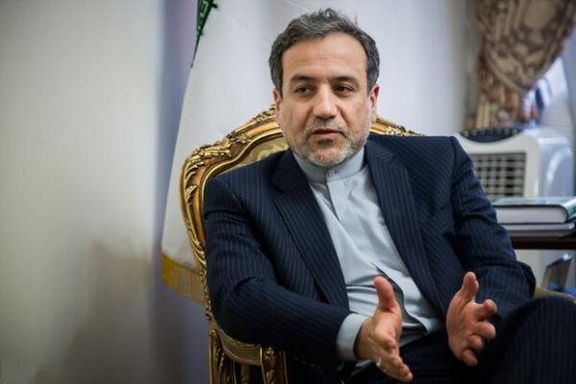
Incidentally, Iranian hardliners and IRGC's top officers' usual threats against Israel and other regional players and their bragging about closing the strait of Hormuz raise tensions between Iran and regional countries.
Araqchi said that both defaming and delegitimizing Iran are "very dangerous." He added that "we should not allow constant demonstrations against Iran" in Europe and other countries. This creates an atmosphere in which other countries begin to have doubts about cooperation with Iran." He charged that Israel is behind such moves.
Meanwhile, Araqchi called the "Neither east, Nor West" motto a precious legacy of Ayatollah Ruhollah Khomeini, the founder of the Islamic Republic. His praise for neutrality came one day after President Ebrahim Raisi returned from a visit to China to boost Iran's "Looking East" policy.
In another part of the interview, Araqchi criticized the hardliners who say Iran does not benefit from the nuclear talks. He said: "We entered the talks because we did not want to be under the West's domination. They were worried about Iran's nuclear program and wanted us to stop the program. I have always said I wish we had filmed the negotiations to show to the nation how we resisted the bullies."
Araqchi said that US nuclear negotiators were significant political figures such as current CIA Chief William Burns, Deputy Secretary of State Wendy Sherman and US national Security Advisor Jake Sullivan. "We were negotiating with them. So, we have self-confidence," he said.
Criticizing Iranian hardliners for mistaking interaction with friendship, Araqchi said the critics should know that diplomats act based on protocols. He also added: "The principles and strategy of foreign policy are determined elsewhere [presumably by Supreme Leader Ali Khamenei] but tactics are designed at the Foreign Ministry. Friendship and enmity are meaningless in foreign policy and international relations.
Araqchi praised Iran's deterrent power and said: "We owe our certainty about our security largely to our deterrent power and the capabilities of our defense industries.
Araqchi, born in 1962, is a career diplomat who joined the foreign ministry while he was still fighting in the Iran-Iraq war in the 1980s. He passed the entrance exam of the foreign ministry's college, studied there, and graduated by the end of the war. He was Iran's ambassador to Finland (1999-2003), Iran's ambassador to Japan (2007-2011), the Foreign Ministry Spokesman (2013) and Deputy Foreign Minister for Political Affairs (2017-2021).

Iranian media sounded optimistic this week following news on Wednesday that Tehran and Washington seemed to be negotiating over a prisoner exchange deal.
But gradually the optimism dissipated as no follow-up news was heard and the foreign ministry spokesman on Saturday told a local news website that the talks have stopped.
Moderate conservative Khabar Online in Tehran was quick to pick up the news about "Progress in the Iran-US negotiations." The website's editors were upbeat that finally, US officials have spoken positively about the revival of the Joint Comprehensive Plan of Action (JCPOA), which is another name for the 2015 nuclear deal with Iran.
Khabar Online observed that "Although some analysts maintain that pressures by Israel and disputes with the Congress as well as some domestic political issues give reasons to the Biden Administration to be reluctant about resuming the nuclear talks, yet the bigger picture indicates a more positive outlook compared to past weeks and months."
Indirect nuclear talks between Tehran and Washington reached a deadlock in September 2022, when at the same time antigovernment protests broke out in Iran. The US in early October signaled that it is not focused on the negotiations any more and is determined to support the rights of protesters.
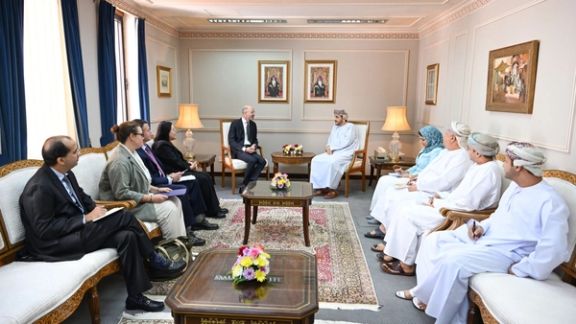
The US Special Representative for Iran, Robert Malley thanked Oman for securing the release of US hostage Baqer Namazi earlier, during a meeting with Muscat officials.
A prisoner deal would reportedly involve the release of Iran’s frozen funds in South Korea and rumors said that Qatar will probably oversee the way Iran will spend the released assets to make sure that it will do nothing with the money other than purchasing food and medicine.
Apart from statements by President Ebrahim Raisi and Foreign Minister Hossein Amir-Abdollahian, Iranian nuclear chief Mohammad Eslami also told the press that Iran is prepared to continue the nuclear negotiations based on previous agreements.
Regardless of any real or imagined progress, Iran's former ambassador to London, Mohsen Baharvand warned in a commentary he wrote for Etemad Newspaper that the possible death of the JCPOA will have unforeseeable repercussions. Baharvand said: "After the death of the JCPOA is announced any of the two parties might resort to actions that would endanger regional and international peace.”
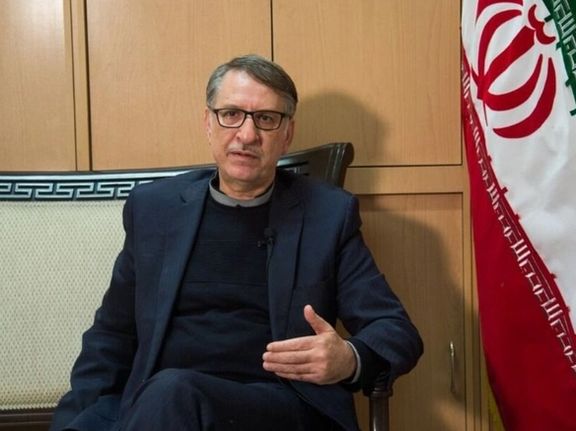
The former diplomat said one of the complications was after saying that finalizing a nuclear agreement is not part of their priorities, the United States and Europe realized that without the JCPOA, Iran may terminate its voluntary implementation of the "additional protocol," which allows inspections by the UN nuclear watchdog, the IAEA.
Meanwhile, reformist activist Fayzollah Arabsorkhi said that policymaking in Iran about the nuclear talks is based on expectations that are not achievable. Arabsorkhi added that Iranian hardliners who are currently in charge are in a way aligned with Israel's policy about the Iranian nuclear program. He said generally, the JCPOA serves Iran's interests but delaying the negotiations for such a long time is not in Tehran's interest.
Arabsorkhi added that the Iranian negotiators should realize that talks cannot just serve Iran's interests. To be successful, negotiations should serve the interests of both sides.
In yet another development, the former chief of the Iranian parliament's national security and foreign relations committee Heshmatollah Falahatp[isheh said that the reason for the failure of the talks to revive the JCPOA so far is that the Rouhani administration was too cautious and the Raisi administration too radical. He added that both governments missed the chance of reaching an agreement.
Falahatpisheh said, that when in December 2020 the hardliner parliament voted on stringent conditions for a deal, former President Hassan Rouhani gave in and did not try harder for a quick agreement.
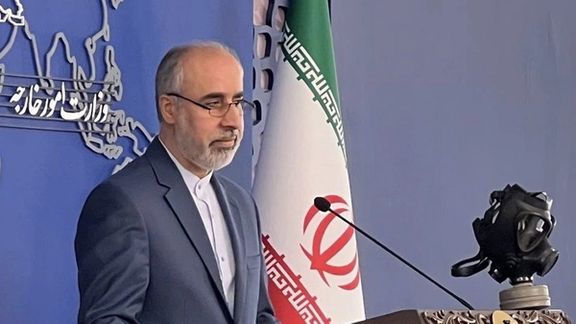
Iran’s foreign ministry spokesman Nasser Kanaani has said Washington is using a “carrot and stick” strategy trying to weaken Tehran’s will to resist its demands.
He also claimed that negotiations for a prisoner exchange are in limbo because “the American government did not act according to its promises.”
Kanaani visited the offices of the hardliner Mehr news website Saturday and spoke with the editorial staff about issues related to nuclear talks and American’s held in Iran.
“The West led by America has adopted a policy of attrition in negotiations, whereby they use every means of pressure, including instigating protests and [continuing] sanctions,” Kanaani said.
He insisted that Washington is indirectly communicating with Tehran, but parallel to talks it uses every means of pressure possible to bring Iran’s tolerance to the breaking point. Among these pressures, Kanaani also mentioned the Iranian opposition that he claimed has “no stature among the Iranian people.”
Tehran’s regime has been badly rattled by more than five months of popular anti-regime protests, with prominent activists in the diaspora uniting and calling for regime change in Iran. These activists have announced that their goal is putting pressure on Western government to support the protests, including listing the Revolutionary Guard as a terrorist organization in Europe.

NBC News reported February 15 that indirect negotiations were taking place for a possible prisoner exchange between the United States and the Islamic Republic. The report said that the two sides were exploring ways that could include a prisoner exchange and the release of $7 billion of frozen Iranian funds by South Korea. Apparently the talks were taking place as recently as this week, when US special envoy for Iran Robert Malley met with Omanis, a regular intermediary between Washington and Tehran.
NBC also reported that the release of the funds would be on the condition that the money will used for purchasing food, reminiscent of ‘food-for-oil’ arrangement during Saddam Hussein’s rule in Iraq in the 1990s.
Iran’s hardliner and anti-Western ruler Ali Khamenei would hardly accept such a condition, which would be humiliating for him and the regime that has already lost a lot of credibility in the eyes of a highly dissatisfied population.
Kanaani who said Iranian citizens arrested in the West for violating US sanctions should be freed, which would be at the heart of a “prisoner exchange” deal.
In fact foreigners held in Tehran are hostages who have been arrested on trumped-up charges and convicted in sham trials.
Kanaani also seemed to demand the release of a former Iranian diplomat convicted on terrorism charges and imprisoned in Belgium. Assadollah Asadi, an Iranian diplomat in Austria was arrested for plotting a 2018 bombing of an opposition rally in Paris and later convicted to a 25-year jail term.
The Biden Administration assumed office pledging to return to the 2015 nuclear deal (JCPOA) with Iran that former President Donald Trump has abandoned in 2018 and imposed sanctions on the Islamic Republic. After 18 months of talks with Iran, the diplomatic process came to a dead-end last September, with the US saying that it is no longer focused on reviving the accord.
In the meantime, anti-regime protests and a sharp deterioration in Iran’s economic situation has put the clerical regime under tremendous pressure. A prisoner deal could perhaps ease tensions and lead to more talks, Tehran hopes.